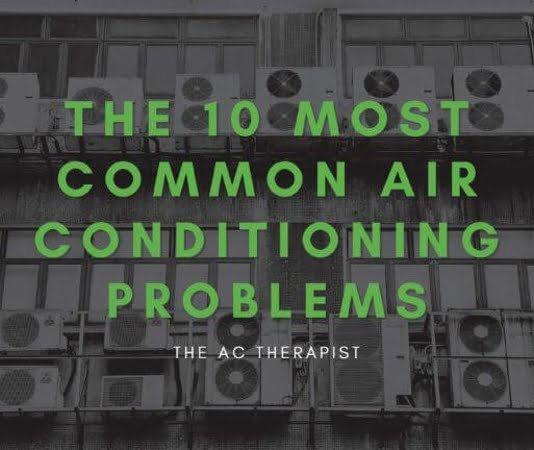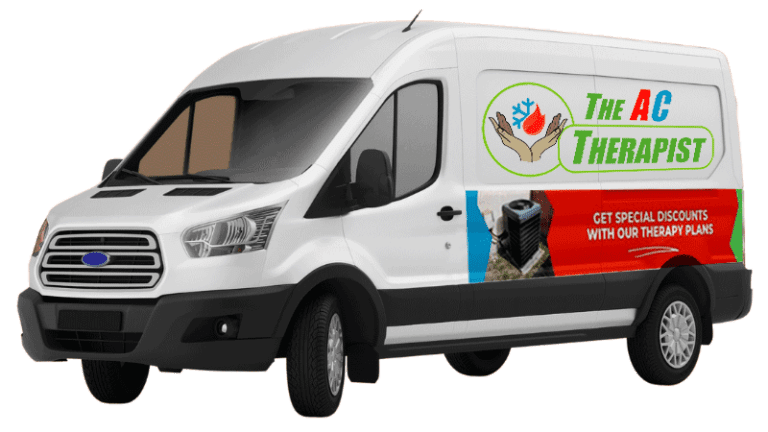The 10 Most Common Air Conditioning Problems
Air conditioning is an essential part of modern life, especially in areas with hot and humid climates. It helps to keep our homes and workplaces cool and comfortable during the scorching summer months. However, like any other mechanical system, air conditioning units are susceptible to problems and malfunctions. These problems can range from minor issues like dirty air filters to major problems like a faulty compressor.
If you own an air conditioning system, it’s essential to be aware of the common problems that can occur and how to troubleshoot them. Being proactive in maintaining your air conditioning system can save you from costly repairs and replacements down the line. In this blog post, we’ll explore the ten most common air conditioning problems and how to troubleshoot them.
1. Dirty air filter
A dirty air filter is one of the most common issues with air conditioning systems. A dirty filter restricts airflow, which can cause the AC system to work harder, leading to higher energy bills and reduced cooling performance. If you notice that the air conditioning system is not cooling your space adequately, or if you notice a decrease in airflow, it could be time to change the air filter. It’s recommended to change the air filter every 1-3 months, depending on usage.
2. Refrigerant leaks
Refrigerant is a critical component of an air conditioning system. It’s the substance that cools the air before it’s circulated into your home. If there is a refrigerant leak, your air conditioning system will not be able to cool effectively. Signs of a refrigerant leak include hissing or bubbling noises coming from the AC unit, ice buildup on the refrigerant line, or a decrease in cooling performance. If you suspect a refrigerant leak, it’s essential to call an HVAC professional to diagnose and fix the issue.
3. Faulty compressor
The compressor is the heart of an air conditioning system. It’s responsible for circulating refrigerant throughout the AC system. A faulty compressor can lead to reduced cooling performance, increased energy bills, and ultimately, system failure. Signs of a faulty compressor include strange noises coming from the AC unit, warm air blowing from the vents, or the AC unit not turning on at all. If you suspect a faulty compressor, it’s best to contact an HVAC professional to diagnose and repair the issue.
4. Electrical issues
Electrical issues can be a common problem with air conditioning systems. Electrical problems can be caused by faulty wiring, a malfunctioning thermostat, or a blown fuse. Signs of electrical issues include the AC unit not turning on, unusual noises coming from the unit, or the circuit breaker tripping frequently. If you suspect an electrical issue, it’s important to contact an HVAC professional to diagnose and fix the problem.
5. Clogged condensate drain
The condensate drain is responsible for removing excess moisture from the air conditioning system. If the condensate drain becomes clogged, it can cause water to back up into the system, leading to mold growth and reduced cooling performance. Signs of a clogged condensate drain include water dripping from the AC unit or a musty odor coming from the vents. If you suspect a clogged condensate drain, it’s best to contact an HVAC professional to diagnose and fix your air conditioning problems.
6. Frozen evaporator coil
The evaporator coil is responsible for removing heat from the air before it’s circulated into your home. If the evaporator coil becomes frozen, it can reduce cooling performance and cause the AC unit to shut down completely. Signs of a frozen evaporator coil include a buildup of ice on the coil, reduced cooling performance, or warm air blowing from the vents. If you suspect a frozen evaporator coil, it’s important to contact an HVAC professional to diagnose and fix the problem.
7. Thermostat issues
The thermostat is responsible for controlling the temperature of your home. If the thermostat is malfunctioning, it can cause the AC system to turn on and off frequently or not turn on at all. Signs of a faulty thermostat include incorrect temperature readings, the AC system turning on and off frequently, or the AC system not turning on at all. If you suspect a faulty thermostat, it’s best to replace it with a new one or contact an HVAC professional for assistance.
8. Dirty condenser coils
Condenser coils are responsible for releasing heat from the AC unit. If the condenser coils become dirty, it can cause reduced cooling performance and higher energy bills. Signs of dirty condenser coils include reduced cooling performance or the AC unit turning on and off frequently. To clean the condenser coils, turn off the AC unit, remove any debris or vegetation around the unit, and gently clean the coils with a soft-bristle brush or vacuum.
9. Air duct issues
Air ducts are responsible for distributing cool air throughout your home. If there are issues with the air ducts, it can cause reduced cooling performance and higher energy bills. Signs of air duct issues include reduced cooling performance or uneven temperatures throughout your home. To diagnose air duct issues, inspect the ductwork for any leaks or blockages. It’s best to contact an HVAC professional to repair any issues with the air ducts.
10. Dirty or damaged fan blades
The fan blades in your air conditioning system are responsible for circulating air throughout your home. If the fan blades become dirty or damaged, it can cause reduced cooling performance and higher energy bills. Signs of dirty or damaged fan blades include reduced cooling performance, strange noises coming from the AC unit, or the AC unit not turning on at all. To clean the fan blades, turn off the AC unit and gently clean the blades with a soft-bristle brush. If the blades are damaged, it’s best to contact an HVAC professional for assistance.
Bonus
A bonus point to consider when troubleshooting air conditioning problems is the capacitors. Capacitors are electrical components that store energy and help to start the compressor and fan motors in the air conditioning unit. Over time, capacitors can become weak or fail, causing the compressor or fan motors to malfunction.
Signs of a faulty capacitor include the AC unit not turning on or making strange noises. If you suspect a faulty capacitor, it’s essential to contact an HVAC professional for assistance, as working with electrical components can be dangerous without the proper training and equipment. An HVAC professional can diagnose and replace the faulty capacitor, ensuring that your air conditioning system runs smoothly and efficiently. Regular maintenance, including checking and replacing weak or faulty capacitors, can prevent major air conditioning problems and prolong the life of your unit.
The AC Therapist is your go-to company for air conditioning problems!
In conclusion, air conditioning problems can be frustrating and uncomfortable, especially during the hot summer months.
However, with regular maintenance and troubleshooting, most air conditioning problems can be resolved. It’s important to change the air filter regularly, inspect the condenser coils, and clean the fan blades to ensure that your air conditioning system is functioning properly.
If you notice any signs of issues with your air conditioning system, it’s best to contact an HVAC professional for assistance.
By staying proactive and taking care of your air conditioning system, you can ensure that your home or office stays cool and comfortable all summer long.
We are a family-run HVAC Company based in the Tampa Bay area with over ten (10) years of experience. All our HVAC technicians are professionally skilled air conditioning installation contractors with years of experience. We are a 24-hour air conditioner repair that will help you with your air conditioner problems that guarantee high quality, reliable and fast HVAC services that will fit right into your budget.
With us, experienced care for your heat and air. Contact us through (813)-343-2212









